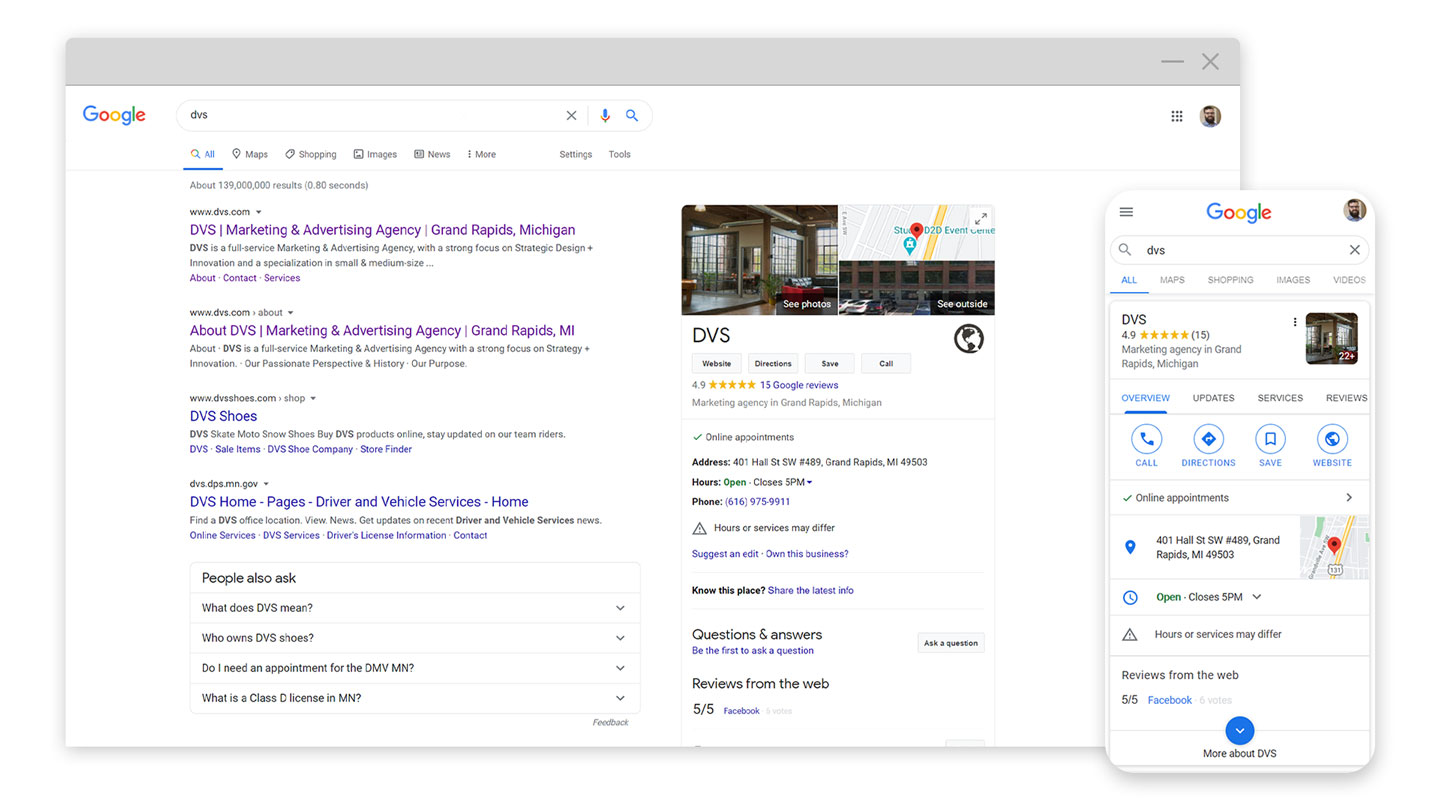Are Homepages Still Important?13 min read

Long thought of as the digital front door to your website, the importance of the homepage has changed over the years. Traditionally seen as the most important area of your site, the homepage usually receives the most time spent on design, content, and development relative to other pages. However, with more traffic flowing directly to interior pages and the rise of purpose-built landing pages that see much higher conversion rates, one might be justified wondering if their homepage matters anymore. Well, the answer is no, but also yes. Let’s talk about why.
Sometimes Your Homepage Does Not Matter…
The first interaction a user has with your site is often a blog article, contact page, about page, or a purpose-built landing page as part of a coordinated marketing effort. This non-homepage traffic can be attributed to SEO, pay-per-click campaigns, social media posts, and Google’s many search engine results page (SERP) features. In its quest to serve the most relevant pages to a user’s query, Google may decide the most valuable content is actually your hours of operation or a list of the services you provide. A user might even land on a blog article answering their burning question about whether or not a homepage is still important. Because Google has made these interior pages more accessible, someone might gather all the information they came for without ever visiting your homepage.
Google’s Zero Click policy has huge implications for web traffic as well. In Google’s pursuit of providing relevant content to its users, rich content like Featured Snippets and Google My Business profiles can appear directly on the SERP. Unfortunately, providing more detailed search results means fewer users are clicking away from Google. Data shows that about half of searches don’t even result in a click on one of the links on the SERP. Best practice dictates that Google My Business profiles should be optimized as a second homepage because users may rely on only that information to dictate their next action.

Another path a user might take is navigating to one of your purpose-built landing pages, using customer relationship management (CRM) software like Hubspot or Sharpspring through an advertising campaign or marketing email. Typically the goal is to drive conversions, and there may not be a need to have a user explore the rest of your site.
As we can see, a non-trivial amount of traffic does not land on your homepage. This creates some challenges. Previously thought of as secondary pages, your interior content needs to reassure the user they are where they intended to be and encourage the user to continue exploring your site.
Providing that confirmation to a user can be accomplished with branding and copy if done well. Perhaps more importantly, the user must be provided with additional navigation options. To keep a user from landing on a page, gathering information, and then ending a session, you must consider what you want them to do next. Open multiple doors and encourage exploration. Typically a homepage will do this with high-level information on services, company information, or calls to action meant to motivate additional discovery. Always think about what a user’s next step is and what options you can provide them.
…But Other Times It Kind of Does Matter
So, we just talked about all the reasons the homepage has lost some of its importance in the user experience of a website. However, there are a few reasons a traditional homepage offers value when building out a site.
We should quickly note, content-forward sites are an outlier in this situation as they do not conform to conventional website structure. News sites that put a heavy emphasis on original content and push it right to the top of the page are an example of this. These sites have constantly changing content on their homepages and use it as a primary jumping-off point to the content the users actually care about. The homepage is everything for these types of sites.
For sites not structured this way, what purpose does the homepage serve? First, we have SEO. Content is king and having the right content and keywords for Google to correctly index your homepage is critical. Creating SEO titles and Google preview content will help your site generate far more traffic by not only appearing higher in organic search results but also appearing in rich results. These are large factors in driving clicks to your site.
Statistically speaking, your homepage is probably the most viewed page on your site. A user may not land on your homepage initially or stick around long when they do, but important destination confirmation happens here. Logos, colors, imagery, and content all let a user know they landed where they intended. DVS is often mistaken for other companies or websites that have similar names or share an acronym. Our logo, video of our office, navigation options, and tagline let users know they found one of the best marketing and advertising agencies around and not a shoe company, their local department of vehicle services, or a southeast Asian telecom company (all true stories).
Lastly, a homepage can function as a “second touch” in a user journey. Someone may have found your site from a relevant blog article or service offering, and they often will tend to explore and vet a website more thoroughly if they are interested in learning more. Having a homepage that comes across as competent and professional goes a long way in building trust with a user.

Yes, but no, but also yes.
It may seem like I spent the last few minutes doling out opinion whiplash by giving reasons both for and against the traditional homepage. The answer is really somewhere in between. The larger takeaway is not that the homepage’s place has been diminished, rather the rest of the pages on a website have become more important and deserve adequate consideration. Each page on a site needs to be able to somewhat stand on its own and not need a homepage to immediately support it. It is important that content and design be considered for the possibility someone may never see your homepage or scroll down the page. While your homepage may no longer carry your site on its shoulders like the Ancient Greek myth of Atlas, it still plays an important role in how you interact with your audience.
As a company specializing in design, content, strategy, and website development, we are in a unique position to handle all the website and accompanying marketing and advertising needs for our clients. From large organizational websites with complex user paths to more streamlined sites perfectly fitting the needs of small businesses, DVS is here to help you effectively communicate with your customers.